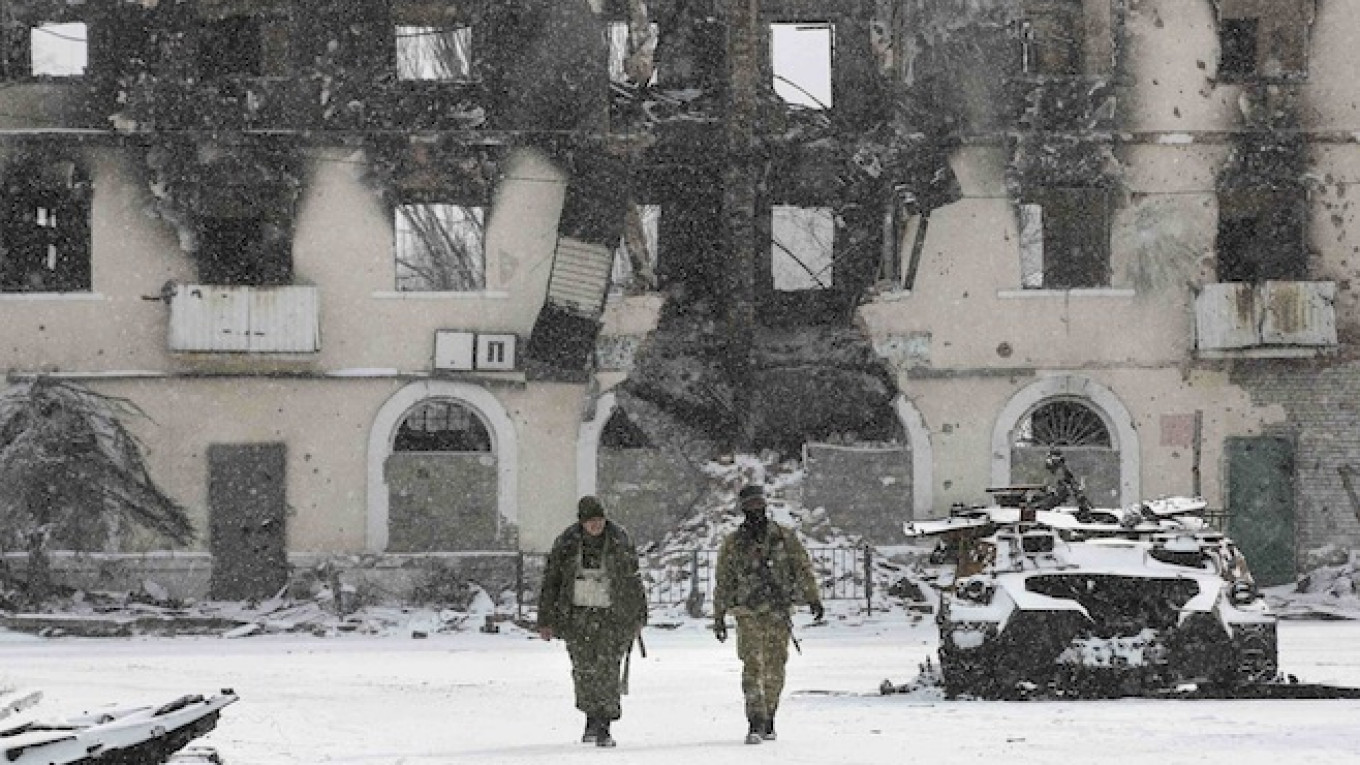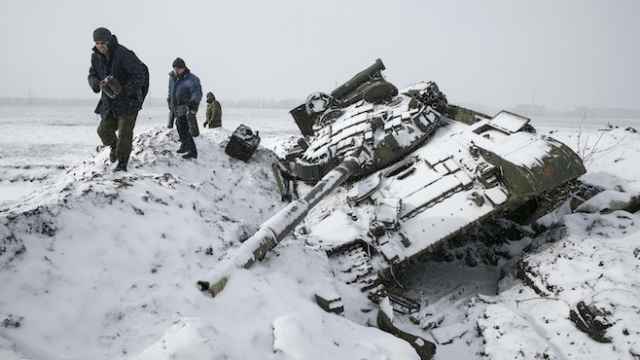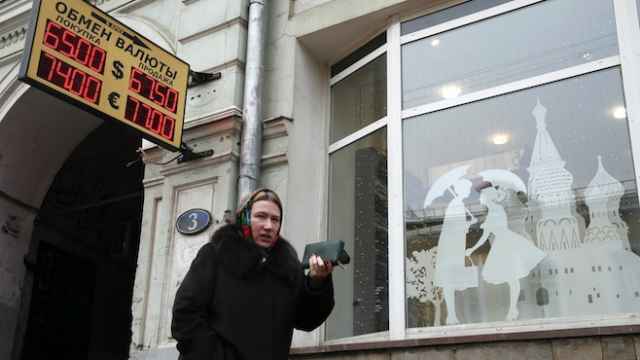Pro-Russian rebels and government forces fought street-to-street in a strategic town in east Ukraine on Tuesday and refused to pull back their heavy guns, all but scuppering hopes that a European-brokered peace deal will end months of conflict.
Two days after a truce went into effect, the agreement reached at all-night talks in the Belarussian capital Minsk last Thursday was unraveling rapidly.
The Moscow-backed rebels say the cease-fire does not apply to the main battle front at the town of Debaltseve, astride a railway hub, where they have a Ukrainian military garrison surrounded. They have continued an all-out assault.
Kiev acknowledged that rebels had fought their way into the town and captured some of its troops defending it.
Both sides had been due to be withdrawing heavy guns Tuesday, but Kiev says it cannot do so as long as the rebels show no sign of halting their advance.
Journalists near the snowbound front line said artillery rounds rocked Debaltseve every five seconds and black smoke rose skywards as Grad rockets pounded the town.
"Eighty percent of Debaltseve is already ours," said Eduard Basurin, a rebel leader. "A cleanup of the town is under way.
Kiev's military denied that the town, which had a peacetime population of 25,000 but is now a bombed-out wasteland, had fallen but acknowledged losing control of some of it.
Some Ukrainian soldiers had been captured, it said, but denied rebel reports that up to 300 had surrendered or been taken prisoner.
Kiev and NATO say the rebel military operation to take Debaltseve is being carried out with the assistance of tanks, artillery and soldiers from Russia's army. Moscow denies that it has sent its forces to participate in battle for territory that President Vladimir Putin has referred to as "New Russia."
Hopes that the deal reached last Thursday would end a conflict that has killed more than 5,000 people were always low after a rebel advance in January ended an earlier truce.
But the ferocity of the fighting at Debaltseve was unexpected and has heightened concerns in Kiev and the West that the separatists and Putin want to cement the latest rebel gains before allowing any peace to take hold.
Military trucks and tanks came and went in the largely destroyed village of Nikishine as the rebels pounded nearby Debaltseve with rockets, heavy artillery and mortar bombs.
"We'll take Debaltseve. It will all be ours. Our homeland will remain our homeland," said a rebel tank operator who gave his name only as Bass, his nom de guerre.
Observers from the OSCE security group, tasked with monitoring the cease-fire under last week's agreement, had hoped to gain access to the besieged town, but were barred from entering by the rebels.
The United States, which is considering sending arms to aid Kiev, said it was "gravely concerned" by the fighting at Debaltseve and that it was monitoring reports of a new column of Russian military equipment heading to the region.
A Message from The Moscow Times:
Dear readers,
We are facing unprecedented challenges. Russia's Prosecutor General's Office has designated The Moscow Times as an "undesirable" organization, criminalizing our work and putting our staff at risk of prosecution. This follows our earlier unjust labeling as a "foreign agent."
These actions are direct attempts to silence independent journalism in Russia. The authorities claim our work "discredits the decisions of the Russian leadership." We see things differently: we strive to provide accurate, unbiased reporting on Russia.
We, the journalists of The Moscow Times, refuse to be silenced. But to continue our work, we need your help.
Your support, no matter how small, makes a world of difference. If you can, please support us monthly starting from just $2. It's quick to set up, and every contribution makes a significant impact.
By supporting The Moscow Times, you're defending open, independent journalism in the face of repression. Thank you for standing with us.
Remind me later.






